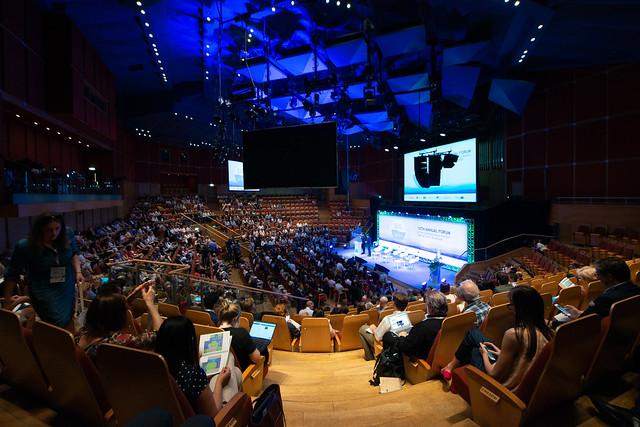Uwaga
Ten artykuł pochodzi z archiwum serwisu WWW i może nie spełniać kryteriów związanych z dostępnością definiowanych przez standard WCAG2.1AA.
Having participated in the 10th Annual Forum of European Union Strategy for the Baltic Sea Region (EUSBSR) on 12-13th June 2019, one could have felt a bit disappointed.
Stunning building of Polish Baltic Philharmonic, very future-oriented and relevant topics of demographic changes along with the circular and sharing economy as well as the organisers’ declaration that the jubilee Forum should be used to conclude the main achievements of the Strategy could not have helped being puzzled about the lack of heads of state and government participating in the event.
In the multi-level governance structure that EUSBSR is proud of with states having national coordinators (in policy areas and horizontal actions), linked to High-Level Group consisting of senior civil servants from the states (formulating strategy’s policy) and the EU that monitors the strategy and action plans’ implementation, this obvious misrepresentation could have been interpreted two-fold.
Has it shown the lack of willingness of national leaders and high EU officials to engage in macro-regional cooperation? Or maybe, it has just underlined the profound change in the macroregional policy framework, which we are facing nowadays and which gives the regions the primacy in this policy? Such a vision might be a very positive one, having noted that the most urgent societal needs and problems are best met and solved on the local level. So if the regions are truly involved in the EU macroregional policies, they can shape them to own greatest benefits. In the case of Baltic Sea Region cooperation, strong role of the regions could be particularly relevant nowadays, when the EUSBSR Action Plan is being negotiated and rewritten.
In one thing has the jubilee EUSBSR Forum written a new page in the Baltic Sea Region cooperation history. For the first time, the event on such a scale and of such an impact was hosted by the region itself (Pomorskie) and was supported by a sub-regional cooperation platform (BSSSC).
Almost 800 participants mainly from around the Baltic Sea took part in five plenary sessions (including opening and concluding panels) and 19 thematic parallel seminars dealing with topics of circularity, SDGs, sharing economy, demography, etc. With a lack of dynamics at the “central levels” regarding regulations on circular economy and a vast representation of the local and regional levels at the Forum, let’s hope that these themes are close to the hearts of the sub-regional and local authorities. Perhaps, also in this matter, the sub-regional activities will flourish and inspire strong national commitment to the circular economy concept.
Considering the 10th EUSBSR Forum in Gdańsk, there is one more thing to mention. It was the first EUSBSR Forum that gave such a loud voice to the Youth from the region to express their stance on various topics. The slogan “nothing about us without us” was put into practice with the youth representatives involved as panellists both in plenaries and thematic seminars. And it proved that the young generations want and can be involved in the discussions on the future of the Baltic Sea.
